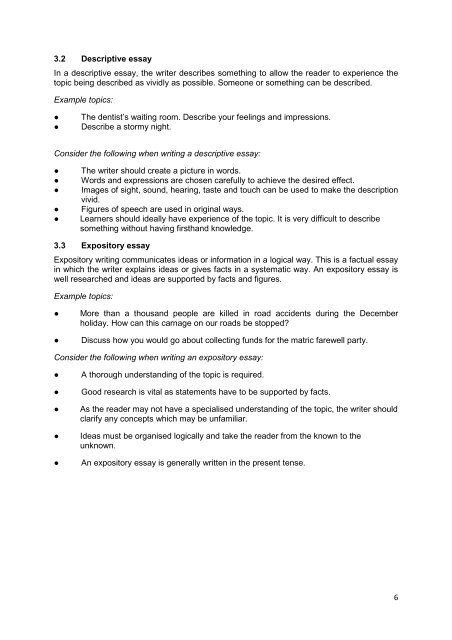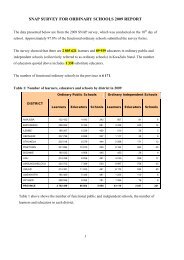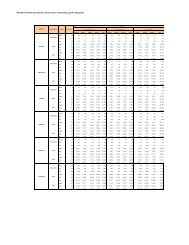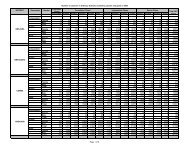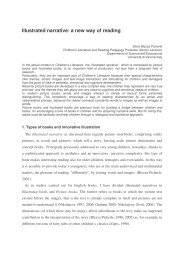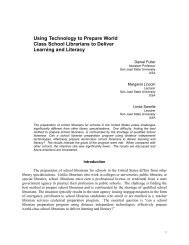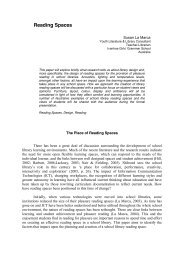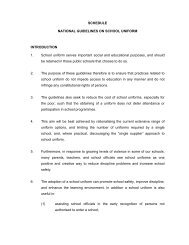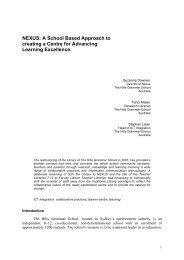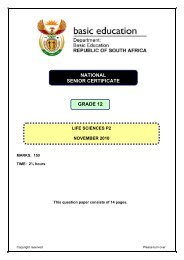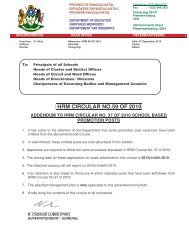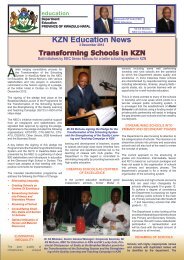GUIDELINE FOR TEACHING AND WRITING ESSAYS ... - Thutong
GUIDELINE FOR TEACHING AND WRITING ESSAYS ... - Thutong
GUIDELINE FOR TEACHING AND WRITING ESSAYS ... - Thutong
Create successful ePaper yourself
Turn your PDF publications into a flip-book with our unique Google optimized e-Paper software.
3.2 Descriptive essay<br />
In a descriptive essay, the writer describes something to allow the reader to experience the<br />
topic being described as vividly as possible. Someone or something can be described.<br />
Example topics:<br />
●<br />
●<br />
The dentist’s waiting room. Describe your feelings and impressions.<br />
Describe a stormy night.<br />
Consider the following when writing a descriptive essay:<br />
●<br />
●<br />
●<br />
●<br />
●<br />
The writer should create a picture in words.<br />
Words and expressions are chosen carefully to achieve the desired effect.<br />
Images of sight, sound, hearing, taste and touch can be used to make the description<br />
vivid.<br />
Figures of speech are used in original ways.<br />
Learners should ideally have experience of the topic. It is very difficult to describe<br />
something without having firsthand knowledge.<br />
3.3 Expository essay<br />
Expository writing communicates ideas or information in a logical way. This is a factual essay<br />
in which the writer explains ideas or gives facts in a systematic way. An expository essay is<br />
well researched and ideas are supported by facts and figures.<br />
Example topics:<br />
●<br />
●<br />
More than a thousand people are killed in road accidents during the December<br />
holiday. How can this carnage on our roads be stopped?<br />
Discuss how you would go about collecting funds for the matric farewell party.<br />
Consider the following when writing an expository essay:<br />
●<br />
●<br />
●<br />
●<br />
●<br />
A thorough understanding of the topic is required.<br />
Good research is vital as statements have to be supported by facts.<br />
As the reader may not have a specialised understanding of the topic, the writer should<br />
clarify any concepts which may be unfamiliar.<br />
Ideas must be organised logically and take the reader from the known to the<br />
unknown.<br />
An expository essay is generally written in the present tense.<br />
6


